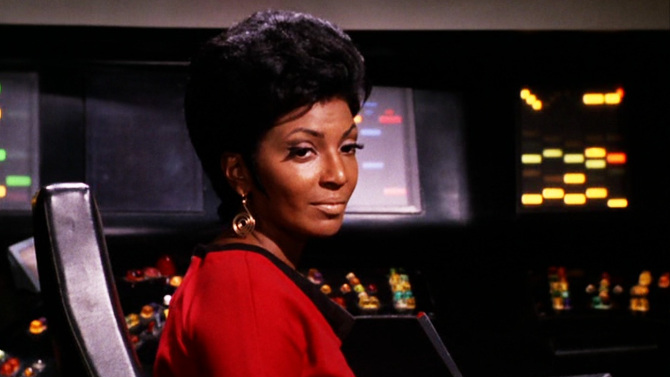
An Impossible Mission
How do you wrap up a franchise like Mission: Impossible? That is, if this even is the final installment... as they’ve made it sound (while at the same time, stars not named ‘Tom Cruise’ pipe up and suggest that might not be so). It has been twenty-nine years, with different writers and visionary directors – from twisty Brian De Palma and the action hair stylings of John Woo, to the lens flares of J.J. Abrams and animation expert Brad Bird, it was only about ten years ago that the franchise decided to opt for The Usual Suspects scribe Christopher McQuarrie for the final four. To return to that opening question once more, you could end with a Sopranos’ style cliffhanger, simply make another entertaining movie like the many before – like Everybody Loves Raymond did it with its final episode, or try to tie everything up in a neat little bow by bringing everything together as the Daniel Craig era did with James Bond. Well, it is definitely more along the lines of the latter example, with some distinct differences.
-
Star Pick with Nichelle Nichols
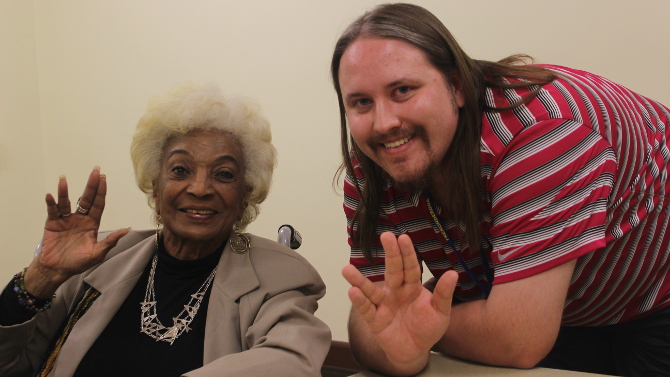 Nichelle, Ma Belle. . .Star TrekAugust 29, 2017
Nichelle, Ma Belle. . .Star TrekAugust 29, 2017It is rare to find a character so iconic that by simply uttering their last name, everyone is on point. One such case is Uhura. Brought to vivid life on the original Star Trek series (1966-1969) by the great Nichelle Nichols who developed an engaging, multi-faceted and wholly inspiring persona at a time when African American women were portrayed as maids or in other lowly servile positions on television. The fourth most powerful person on the USS Enterprise, Nichols was a part of a multicultural cast that was more than unusual for the era. The crew was comprised of African American, Asian American, Scottish, Russian (during The Cold War), half-alien, and white – symbolic that in the future, we, as human beings, would be able to come together to achieve something special, or as it was so aptly put: “Space: the final frontier. These are the voyages of the Starship, Enterprise. Its five year mission: to explore strange new worlds; to seek out new life and new civilizations; to boldly go where no man has gone before”.
-
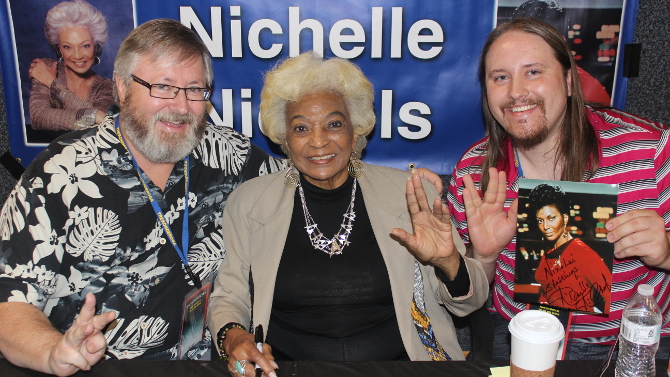
Trekonderoga: The Journey Back
August 27, 2017Over misty mountains and through coniferously wooded dales, I made the three plus hour trek back through the picturesque Adirondacks, returning to the beautiful town of Ticonderoga, New York. Nestled between striking Lake Champlain, Lake George and the Vermont border, the third annual Trekonderoga, the aptly named convention, provides fans of the original Star Trek series with a multitude of opportunities and activities. Starting on Friday, the 25th of August and running through the weekend, attendees were able to tour the meticulously constructed set of the original USS Enterprise, see the Batmobile, browse through a plethora of vendors, listen to a wide array of panels, and meet their favourite celebrities – a rich, nuanced and vivid experience for all those looking to collect, learn, and make long lasting memories.
-
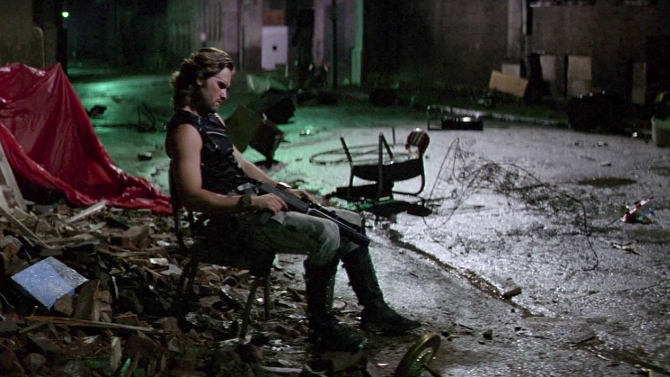
There’s No Escaping This One
Escape from New YorkAugust 20, 2017Uttered in the opening narration, the oft quoted line “the rules are simple: once you go in, you don’t come out” is in many ways symbolic of how John Carpenter’s 1981 motion picture Escape From New York has ensnared a passionate cult following. Set in a dystopic America in 1997, the crime rate has risen by four hundred percent, and the island of Manhattan has become an Alcatraz of sorts, only infinitely more secure and bizarrely intense. Surrounded by a behemoth of a wall and patrolled by the United States Police Force, all bridges leading out of the city are mined, making for a doom laden locale that has a semblance of inescapability. Carpenter carefully transports us into this eerie world at the movie’s opening, providing us with an eagle-eyed perspective of Manhattan and its near impenetrable defences.
-
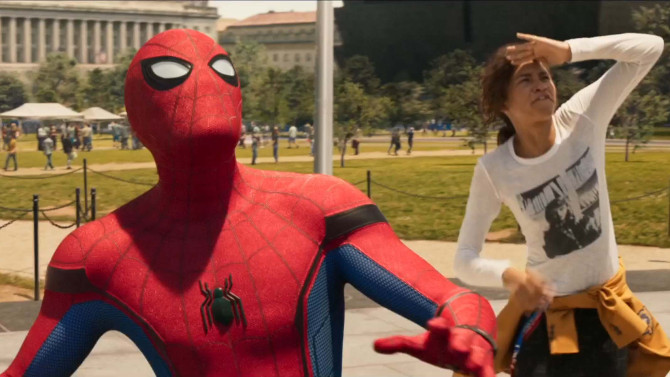
The Web Grows
Spider-Man: HomecomingAugust 15, 2017Let’s be honest – we don’t go to see a movie like Spider-Man: Homecoming for its shocking twists and turns. Now on its second reboot since the Tobey Maguire starring, Sam Raimi directed 2002 film, it draws us to the theatre as it is a known commodity, a popcorn flick that we feel comfortable settling in to. . . and its biggest twist is probably that the creative team chose to go with The Ramones’ “Blitzkrieg Bop” instead of the band’s remake of the Spiderman theme song. Also, there is a little twist with the second post credit scene, a cheeky cameo that will have some happy they persevered, while others will complain that it didn’t pay off. Directed by Jon Watts, the narrative follows unusual high schooler Peter Parker (Tom Holland – the first time an actual teen has been cast in the part), the web-slinger must contend with those complicated teenage years, while also doubling as a quote/unquote intern with Stark Industries – motor-mouthed Tony Stark (Robert Downey Jr.) flits in and out as the kid’s mentor.
-
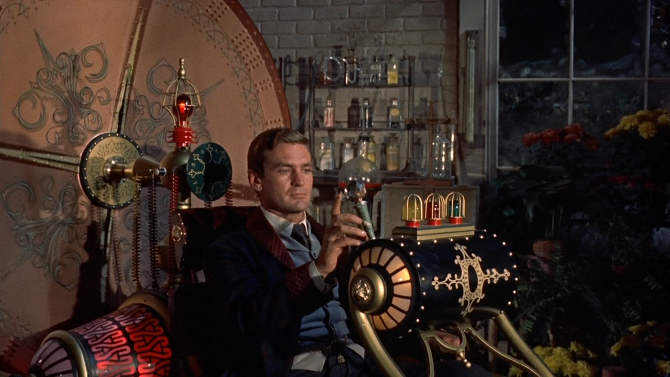
Time Traveller
The Time MachineAugust 13, 2017One of my favourite films as a young boy – wholly capturing my imagination, was the 1960 George Pal directed sci-fi adventure The Time Machine, based on the 1895 novel of the same name by iconic author H.G. Wells. It is this movie that has possibly fuelled my intrigue with clocks, pocket watches and other time oriented things (motion pictures definitely fit within this grouping). Set at the turn of the twentieth century, specifically on two days, December 31st, 1899/ January 5th, 1900, H. George Wells (Rod Taylor) is an inventor and time enthusiast, a peculiar fellow who has changed quite a bit in a short amount of time – at least according to his friends. Disenchanted by the warmongering of the British government (the Boer War) and the ways in which technology has been used to improve the efficiency of killing, the inventor looks to the future for hope in humanity.
-
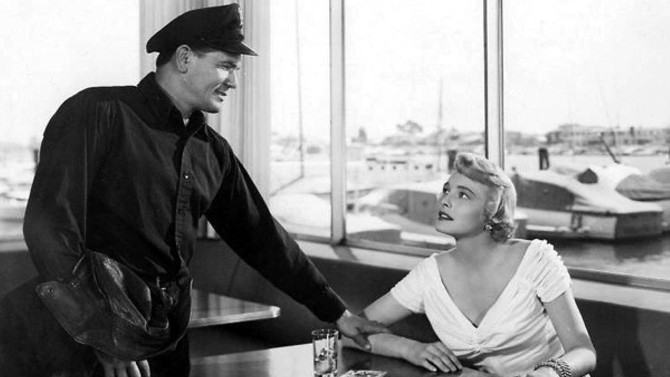
Point of No Return
The Breaking PointAugust 11, 2017An atmospheric noir that takes place on both land and sea, Michael Curtiz’s 1950 crime drama The Breaking Point, the second adaptation of Ernest Hemingway’s “To Have and Have Not” (the original, the 1944 version, utilized the novel’s title and paired Humphrey Bogart and Lauren Bacall for the first time), is a gripping tale that never lets you go. A touch less cynical but just as fateful as your prototypical film noir, the narrative follows former marine Harry Morgan (John Garfield), a genuine yet gruff fishing boat captain who has never caught the break he has so hoped for. Working with his loyal-to-a-fault African American first mate, Wesley Park (Juano Hernandez), the pair have been together for twelve years, always just making ends meet.

